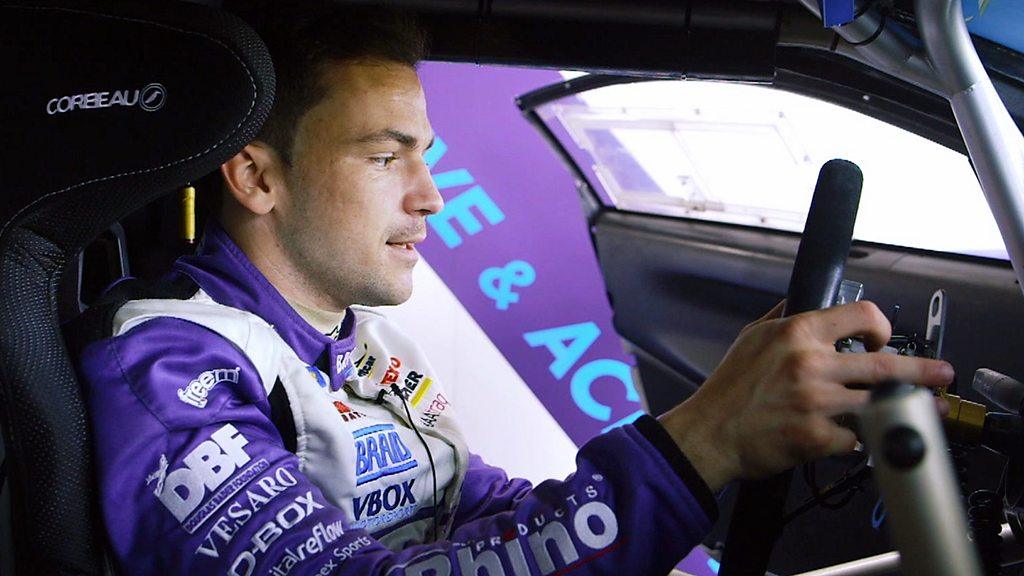Team BRIT: 'Disability motorsport means everything'
- Published
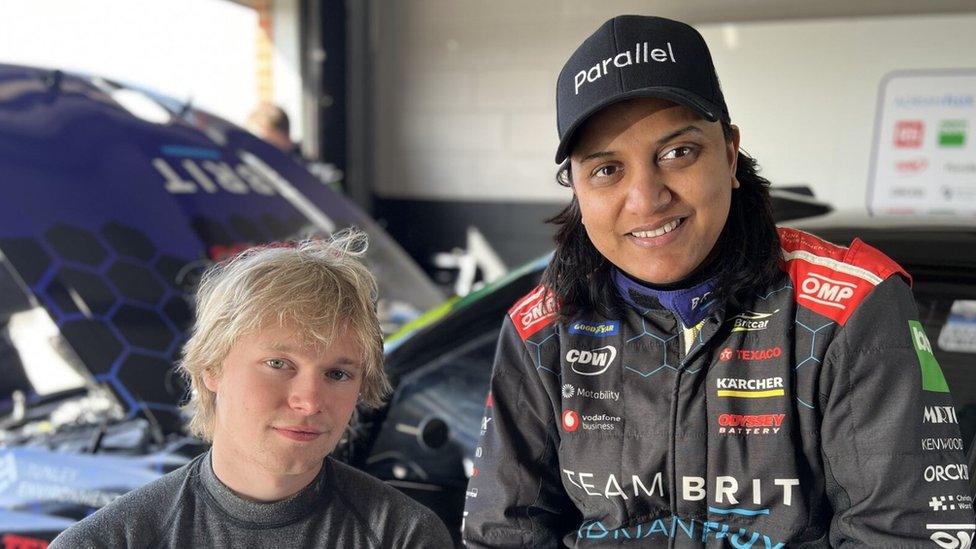
Noah Cosby competes in a BMW M240i alongside team mate Asha Silva
The UK's only all-disabled competitive racing team were at Snetterton racetrack in Norfolk at the weekend to compete in the Britcar Trophy Championship alongside able-bodied drivers. The BBC met Team BRIT drivers and heard how motorsport provides equality for people with physical and psychological challenges.
'There's nothing stopping us being the fastest out there'
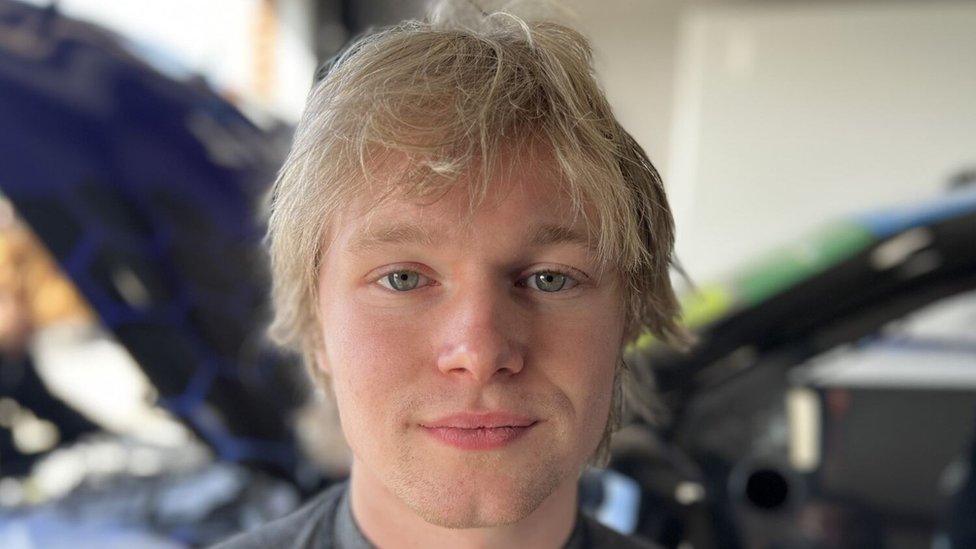
Noah Cosby had hoped to moved to the USA to compete as a motocross rider once he had completed his A-levels
Noah Cosby, 19, from Towcester, Northamptonshire, always dreamed of competing in motorsport.
Then in March 2021, everything changed when he broke his back in a fall during a jump. Aged 16, he was paralysed from the base of his ribs down.
"I felt I had lost a huge part of myself," he says.
"I was also in my first year of A-levels so I had that to juggle and had missed a year of school, but I passed and that was when I started to concentrate on myself, not my studies."
Through a friend, he tried a racing simulator but switched to an adapted racing car - reaching speeds of 150mph (241km/h) - just three months after passing his driving test.
He now competes in a BMW M240i alongside team mate Asha Silva, from Kettering.
"It is a completely different way of driving and it's something I need to get used to, but I never learned to drive a car using my legs," he says.
"I think motorsport is the only sport where I can be on a completely level playing field, and we are proving that.
"There's nothing stopping us being the fastest out there.
"It doesn't matter who you are, as long as you can drive a car.
"It's given me the majority of my confidence that I've gained since the accident; it's made me feel like myself before the accident.
"My dream is to push the boundaries even further - GT3 is where I would like to be at.
"It's completely achievable, I just need time behind the wheel."
'It's a dream come true'
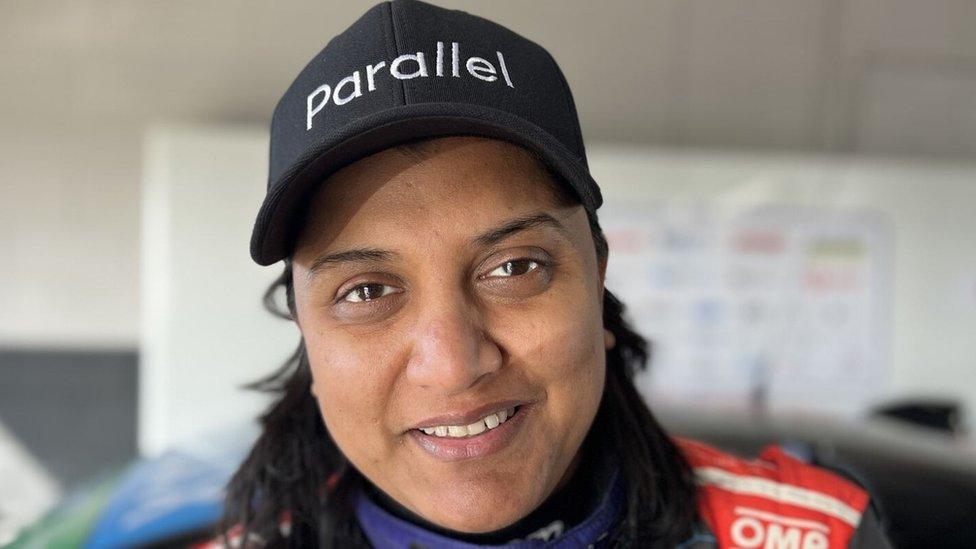
Asha Silva hopes to inspire more women into the sport
Asha Silva started out as a rookie after realising her race driver potential on a computer simulation.
Like Noah, she had long wanted to compete in the real fast lane - but took a little longer to get there.
After struggles with her mental health, she was encouraged by her wife to seek help and was eventually diagnosed with ADHD and adult autism.
She says the conditions give her a "hyperfocus", which is an asset behind the wheel.
"I use pedals and on the side of the steering wheel we have rocker switches - gear up, gear down - and I function that way.
"My business-as-usual is to have 110 things going through my mind but as soon as I am behind that steering wheel I have one thing on my mind.
"All that noise goes away and I can put all my attention on the command coming through radio and put that straight into output on track.
"It's about passion; when we have passion for something we tend to focus solely on that.
"I want to say its a superpower but it's just how my brain works."
She says Team BRIT is a special place and "just one big family".
"Inclusion is top of the agenda," she adds.
"We all come from different walks of life and we all understand each other's journeys and we give each other the time and space.
"When I grew up people asked me what I wanted to do when I was older, my actual answer was 'I want to be a race driver or a pilot'.
"Here I am at 40 years old and I'm able to do it; it means everything to me.
"It's a dream come true."
'I was racing three weeks after my amputation'
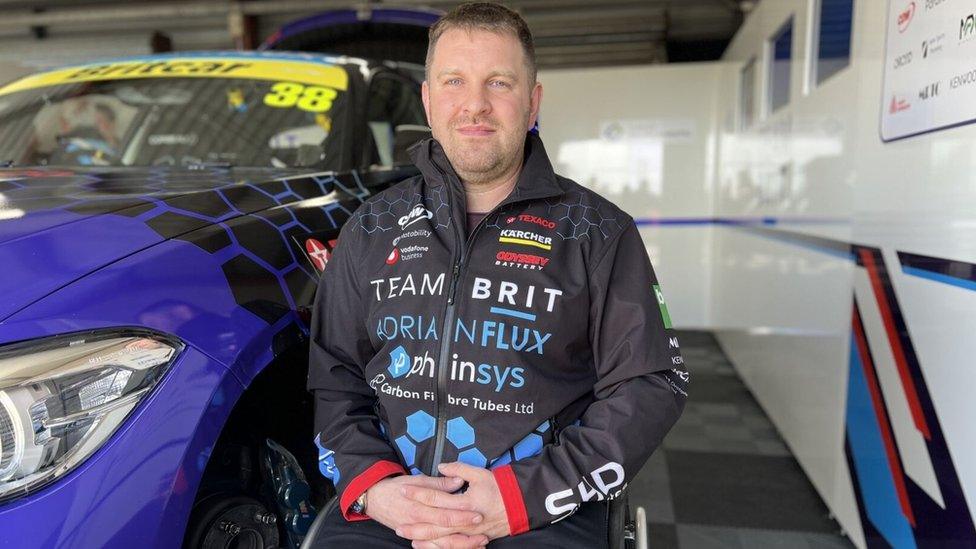
Once you are in the car the other drivers don't see a disability, Paul says
Paul Fullick, 40, from Southampton, was a member of the British Army until a diving accident forced him into early retirement.
He was still very active and competed in driving and riding challenges for charity, including getting to Gambia in a car that cost him £100.
Then, in 2021, he lost his right leg after a motorcycle accident while touring in Wales.
"Team BRIT means everything to me; it was part therapy, part adventure," he says.
"I used to be a motorcycle racer but couldn't do that anymore after my amputation.
"I found Team Brits, emailed them from hospital and three weeks later they had me in a car and I was out racing.
"It gave me something to focus on; rehabilitation is 100% about focus and having something to really concentrate on gave me everything I needed."
He said being able to race every weekend in the McLaren 570s GT4 meant his rehabilitation was never boring and, importantly, he could compete as before.
"Once you are in the car the other drivers don't see a disability," he adds.
"To be able to go out there with an anonymity and just compete as a person, not a disabled person, is really, really important.
"I can't think of another sport where you can compete on that level playing field.
"The goal is be the first disabled team to compete at Le Mans, external - I would love to be part of it when we make that history."

Follow East of England news on Facebook, external, Instagram, external and X, external. Got a story? Email eastofenglandnews@bbc.co.uk or WhatsApp 0800 169 1830
Related topics
- Published14 February 2024
- Published18 November 2021
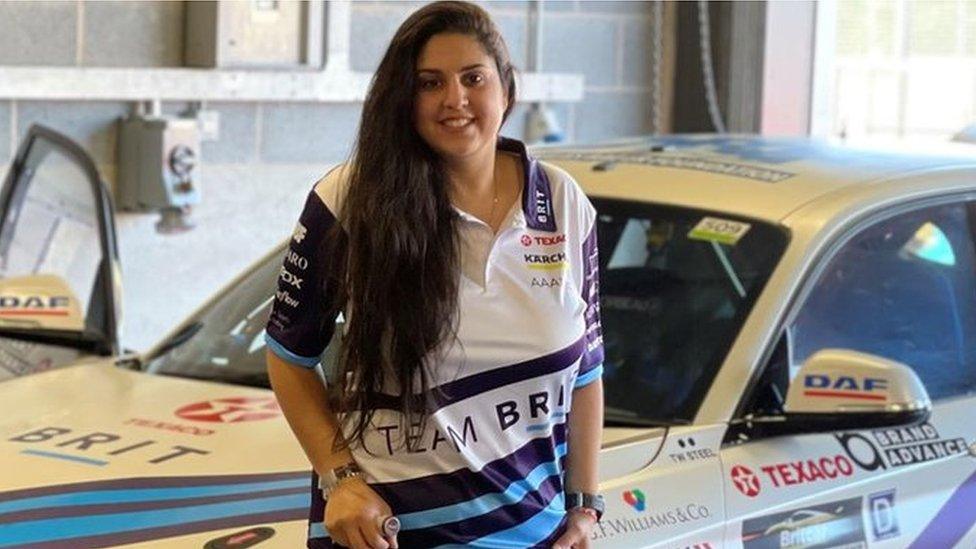
- Published28 July 2021
